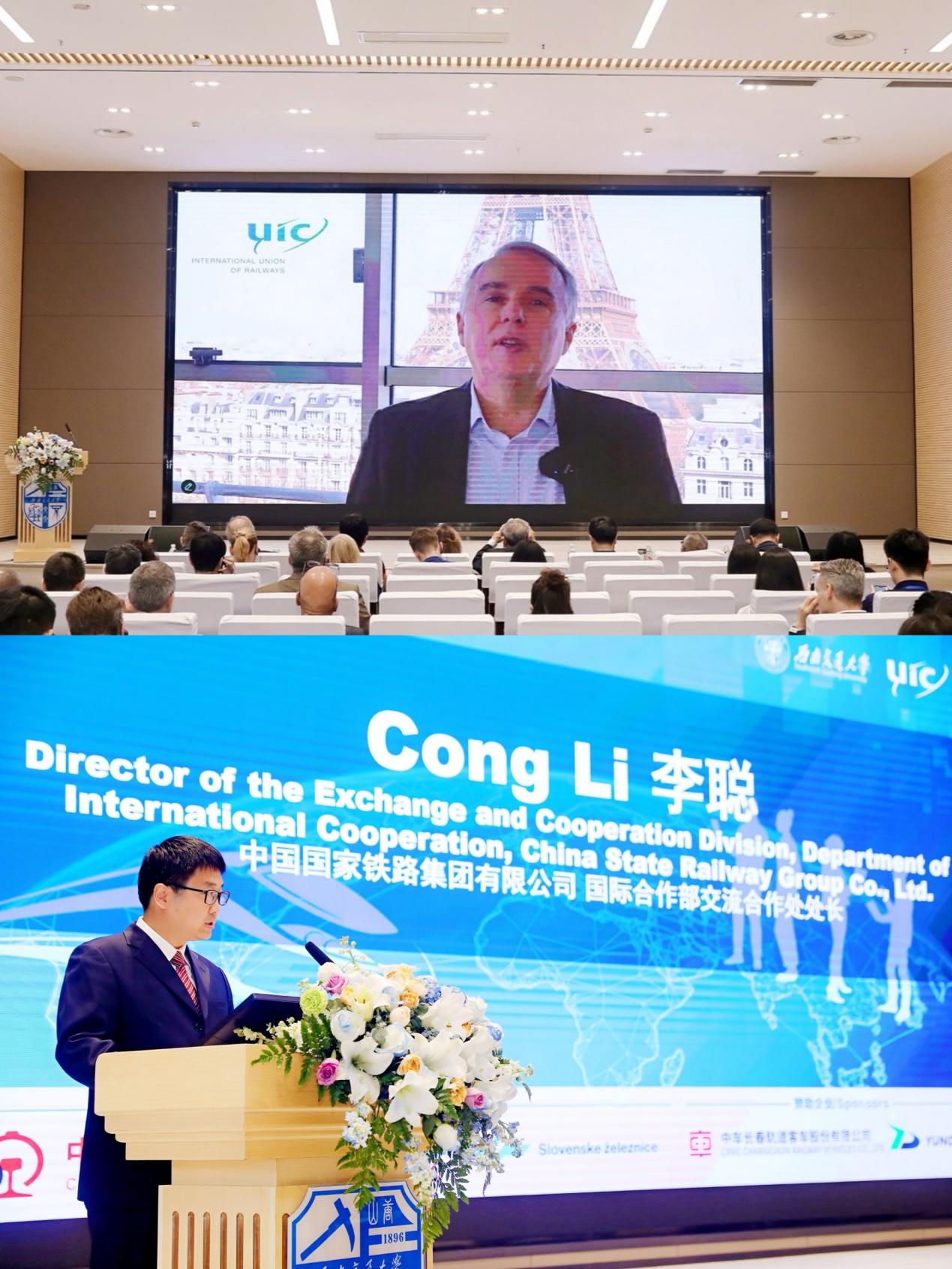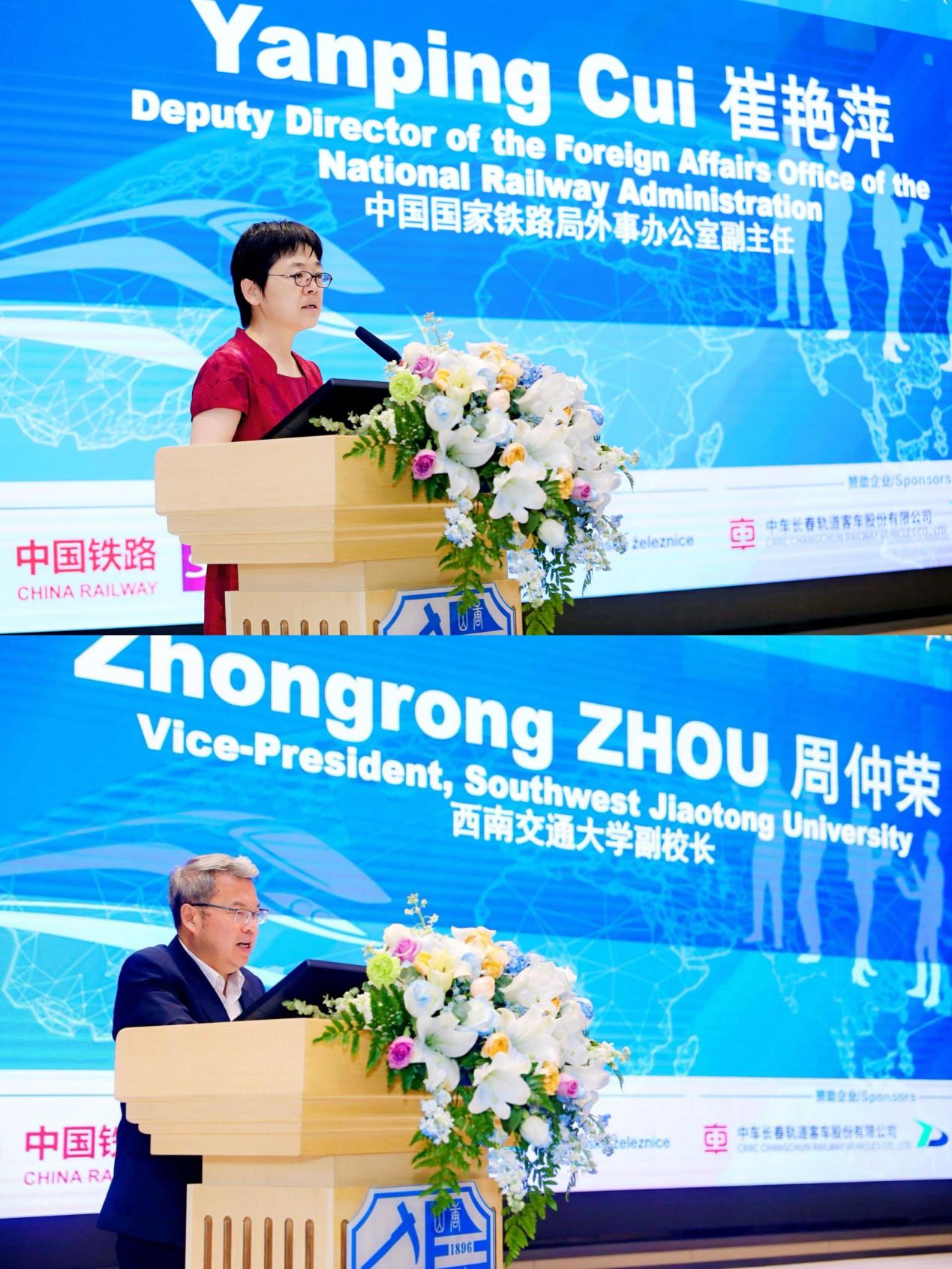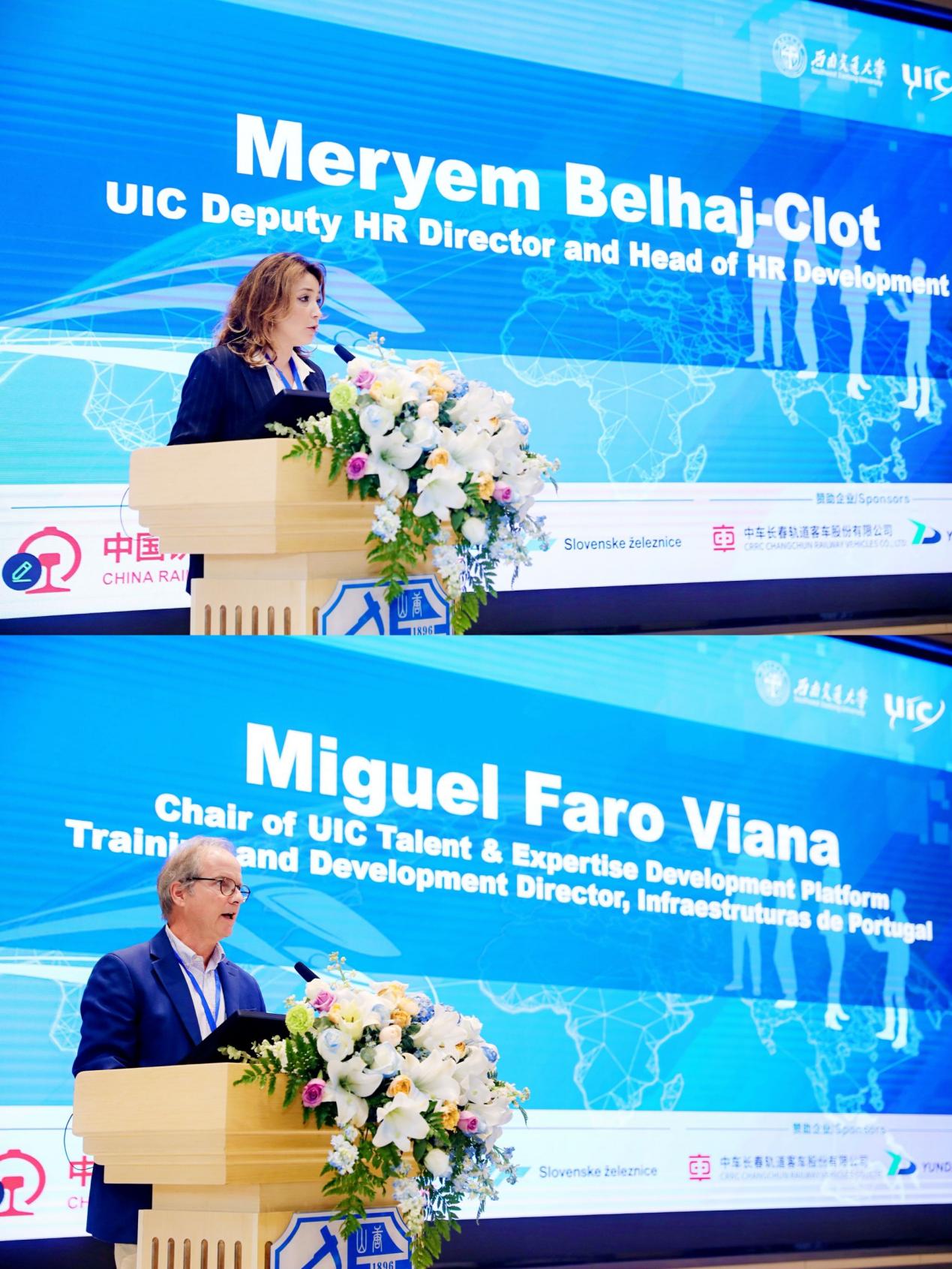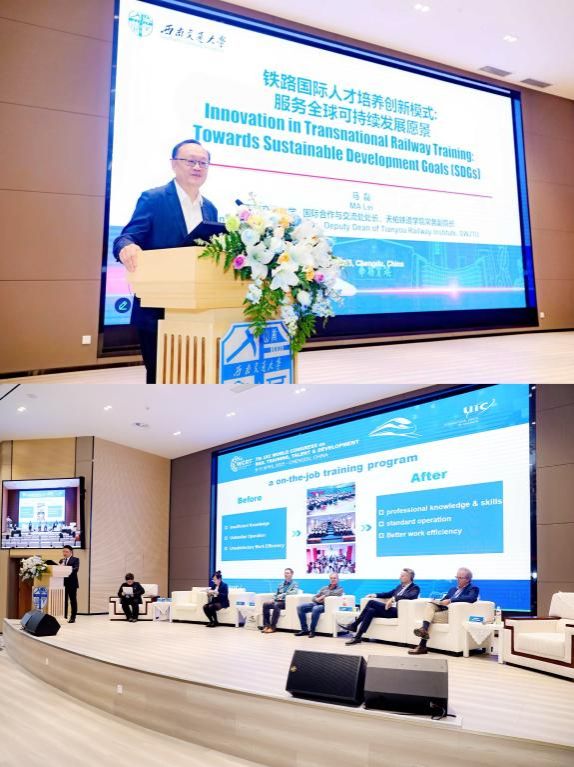From April 4 to 9, the 7th World Congress on Rail Training (WCRT) was jointly held by Southwest Jiaotong University (SWJTU) and International Union of Railways (UIC) on the campus. The congress attracted over 150 representatives from colleges, railway operation companies and other enterprises in 18 countries. The Congress focused on railway talent cultivation and facilitated the in-depth integration of railway industry, education and research, injecting fresh momentum into the global railway industry.
Prior to the congress, Yan Xuedong, President of SWJTU, met with members of the WCRT 2025 Committee. They exchanged ideas about technology innovation and international cooperation, and built consensus on railway talent development.
At the opening ceremony, François Davenne, UIC director general, gave a video speech in which he expressed his gratitude to SWJTU for the efforts invested, emphasized the key function of talent cultivation for railway industry transition, and reaffirmed UIC’s stance to promote global industrial collaboration.
Li Cong, Director of International Affairs of the Department of International Cooperation of China Railway, said that China Railway attached great importance to the strategic cooperation with SWJTU, and hoped to build with the university a co-partnership to integrate college education and railway industry.

Cui Yanping, Deputy Director of Foreign Affairs Office of the National Railway Administration said that the Administration is willing to advance technology innovation and talent cultivation with partners from all over the world and accelerate the development of railway sector.
Professor Zhou Zhongrong, vice president of SWJTU, reviewed the interconnected development of the university, China and railway of the world. He mentioned that the university has anchored in its research endeavor in addressing contemporary demand, contributing “Chinese wisdom” to global railway development. He suggested that an open and flexible educational system and a globalized cooperation network should be instituted for railway education, and talents should be nurtured with inter-disciplinary model.

Meryem Belhaj-Clot, UIC Deputy HR Director and Head of HR Development, regarded this congress as an essential platform for knowledge sharing and global partnership. Miguel Faro Viana, Chair of UIC Talent & Expertise Development Platform, highlighted in his speech that the key components are talent training, skill improvement and knowledge sharing.

Professor Ma Lei, Director of the Office of International Cooperation and Exchanges of SWJTU, delivered a keynote speech entitled “Innovation in Transnational Railway Training Towards Sustainable Development Goals (SDGs)”.
The topic of the first day was Chinese experience on international and transnational cooperation. SWJTU shared its practices on specialized talent development in the Belt and Road Initiative related programs such as Tianyou Railway Institute and Jakarta–Bandung High-Speed Railway. The congress agenda encompassed expert forums, technical field visits, interactive workshops and networking sessions, featuring more than 50 dedicated reports that delivered in-depth discussion on critical issues about railway training in the future.

Marking its first hosting in China since its inception in 2011, this Congress stands as a testament to the deepened collaboration between SWJTU and UIC in advancing railway talent development and technological innovation. The World Congress on Rail Training not only serves as a premier platform for academia-industry discourse but also epitomizes China’s proactive engagement in global railway governance. As the UIC’s convergence with the Belt and Road cooperation network continues to develop, SWJTU will further leverage talent cultivation as a bridge, partnering with nations worldwide to co-build an intelligent and sustainable future for global rail industry.
Guests of the congress visited Chengdu Training Department of the Employee Training Base under China Railway Chengdu Group Co., Ltd., Chengdu East Railway Station, National High-Temperature Superconducting (HTS) High-Speed Maglev Test Line at Southwest Jiaotong University’s State Key Laboratory of Rail Transit Vehicle System and the Construction Command Center for the Dynamic Simulation Experimental Platform of Multi-state Coupled Rail Transit.